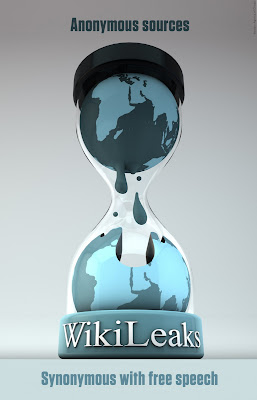Steven Johnston
University of South Florida
One might object to the Nobel Committee’s decision regarding Obama. After all, he doesn’t (and never will) belong in the company of prior winners such as Martin Luther King, Amnesty International, Médecins Sans Frontières, International Campaign to Ban Landmines, Lech Walesa, Desmond Tutu, Nelson Mandela, and the International Committee of the Red Cross. If Reggie Bush has to forfeit his Heisman Trophy, how does Obama retain his Nobel Prize?
One might also say nothing about the Nobel Committee’s decision. After all, the Committee forever discredited itself in 1973 when it awarded the prize to the poster boy of war criminals, Henry Kissinger. This was followed by future awards to thugs and terrorists like Anwar Sadat, Menachem Begin and Yasser Arafat. It’s a small wonder, in fact, that the Nobel Peace Prize hasn’t expired due to international scorn and derision.
Since it hasn’t, I would like to propose a candidate for the 2011 peace prize: Julian Assange. Thanks to the mass circulation of classified government documents, the “founder” of WikiLeaks has become the obsession of the United States and other world powers, driving them to fits of righteous indignation. Representative Peter King of New York (R) claimed the leaks were “worse even than a physical attack on Americans, it’s worse than a military attack.” King has demanded prosecution under the 1917 Espionage Act (a World War I legislative tool designed to crush dissent) and would like to see the State Department declare WikiLeaks a terrorist organization. Eric Holder’s Justice Department is more than happy to comply, if it can. Not to be outdone, Sarah Palin, would-be presidential candidate, offered a post on Facebook in which she equated Assange with al-Qaeda and declared him “an anti-American operative with blood on his hands.” Palin asks rhetorically, if also indirectly, why Assange hasn’t been targeted for assassination. The Wall Street Journal likewise called for his summary death, invoking the Chinese and Russians as models who would know exactly what to do in such a situation.
Palin’s accusation, made by many others as well, that Assange’s hands are covered in blood betrays a certain anxiety. The sovereign state does not tolerate, let alone appreciate, political rivals, perhaps especially “a solitary man armed only with computer equipment” (to quote Investor’s Business Daily) taking on such a civic role and responsibility. It reserves to itself the right to kill or let live and the United States in particular, which includes the Nobel Prize winner currently occupying the White House, has much blood on its hands—not enough, of course, for the Peter Kings and Sarah Palins of the world, but more than enough to reveal the absurdity of the patriotic libel made against Assange. If anything, the greatest testimony to Assange’s contributions to peace and qualifications for the Nobel Prize come from those who would see him dead.
Assange’s aim: a more just world. Leaking is a question of political responsibility, of what it means to be a citizen, in this case, a global citizen or a citizen with a cosmopolitan ethos. By “publishing” government documents, which can reveal, among other things, the discrepancy between public policies and private assessments of those policies, between what governments say they are doing and accomplishing and what they are actually doing and accomplishing, Assange would force governments to pursue different foreign and domestic initiatives. Failing that, he would force governments and their agencies, such as those that constitute the American National Security State, to close ranks and tighten security protocols governing the handling and sharing of secret and sensitive information. Insofar as such sharing has been deemed essential for a state’s military-security apparatus to function at full capacity, sustained leaks might deal it a severe operational strike. True, Assange would deal a blow to the heart of the American empire, but he has other hegemonic states in his sights as well. This does not make him anti-American; nor does it render him anti-Chinese or anti-Russian; it makes him pro-democracy.
The United States aspires to a monopoly on WikiLeaks outrage and this may be due to Assange’s impertinence as much as to his exposés. Investor’s Business Daily, for example, cites the humiliation Assange has inflicted on the “mighty” United States—again. Of course, the United States is all too familiar with humiliation; it’s at the heart of the Vietnam Syndrome, which continues to haunt the exercise of American military power and its patriotic culture. Supposedly exorcised in the first Gulf War, it returned with a vengeance with George Bush’s failure to conquer and remake the Middle East in America’s image. The United States now has two failed wars to its credit in the first decade of the 21st century. Unlike the Pentagon Papers, which shocked the United States public with systematic official deception, the WikiLeaks documents pertaining to Afghanistan (including prior postings) remind of us of truths already well known and the subject of a kind of willful denial. No sovereign state likes being called on its ongoing failures, especially in the realm of war. The WikiLeaks cache serves as an official reminder of American impotence and, in theory, might contribute to formal criminal charges before international bodies. Kissinger and Nixon waged the Vietnam War for four needless years knowing the outcome had already been decided. The United States obtained the same peace arrangement in 1973 it could have secured in 1969. Obama is repeating the strategy in Afghanistan. More than likely he will be a one-term president; it’s a shame it will be the result of failed economic and fiscal policies (themselves the result of a failure of political will) rather than a principled stand to end a lost war. Too bad he lacks the courage of Julian Assange.
















